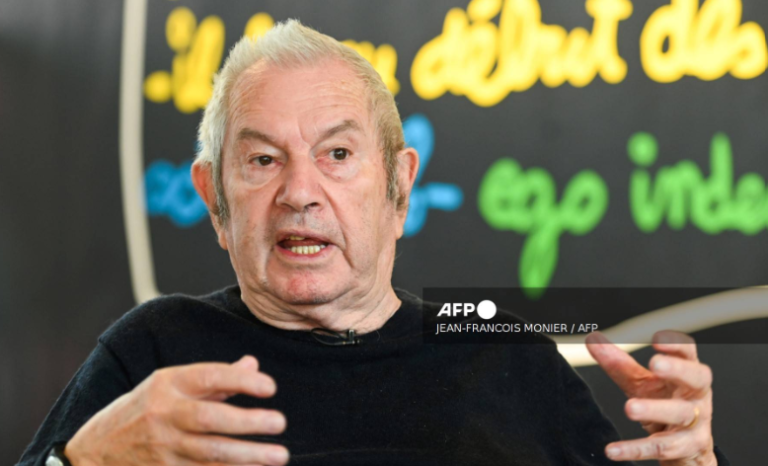French artist Benjamin Vautier, best known for his ironic painted slogans, has died aged 88, taking his own life just hours after the death of his wife of 60 years, his family said Wednesday.
His wife Annie suffered a stroke on Monday evening and died on Wednesday, the couple’s two children, Eva and Francois, said in a statement.
“Unwilling and unable to live without her, Ben killed himself a few hours later at their home” in the French Mediterranean city of Nice.
Born in Naples in 1935, Ben moved to Nice aged 14 and spent the rest of his life there.
He was associated with the Fluxus movement of the 1960s that sought to disrupt what counted as art, with a style of street-based, provocative irony that proved highly influential.
“Everything is art,” he would say, and instead of traditional artworks, he made “gestures”: standing in the window of a gallery and shouting until he lost his voice, organising plays that never happened, or piano recitals where the pianist would run away.
He would sign anything he wanted, claiming it as his creation: the bodies of passers-by on the Promenade des Anglais in Nice, or even other artists’ work.
“My art will be an art of appropriation. I seek to sign everything that has not been signed. I believe that art is in the intention and that it is enough to sign,” he once said, as always with a smile.
By ignoring the “protected framework of museums” and refusing to see art as the fruit of training and talent, Ben irritated some in his profession who considered him an opportunist and dilettante.
But he insisted there was always a serious message behind the jokes. “I am not a money machine, but a communication machine,” he said.
He became best-known for his humorous slogans, usually painted in white on a black background, in a childlike handwriting: “What is the use of art?”, “Is the new always new?”, “What are you doing here?”
They earned him a place in MoMA in New York as well as being replicated widely — on school bags, notebooks or tram stops in Nice.
“On our children’s pencil cases, on so many everyday objects and even in our imaginations, Ben had left his mark, made of freedom and poetry, of apparent lightness and overwhelming depth,” said French President Emmanuel Macron in a statement.
“The world of culture has lost a legend,” added Culture Minister Rachida Dati, hailing a “goldsmith of language”.
AFP
